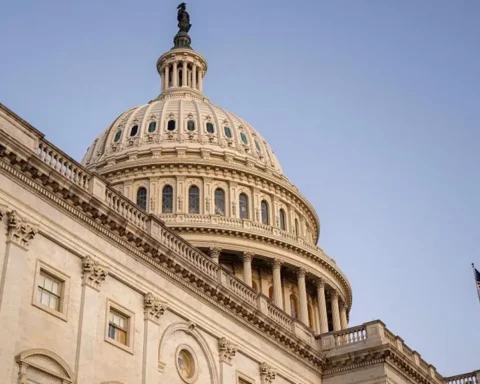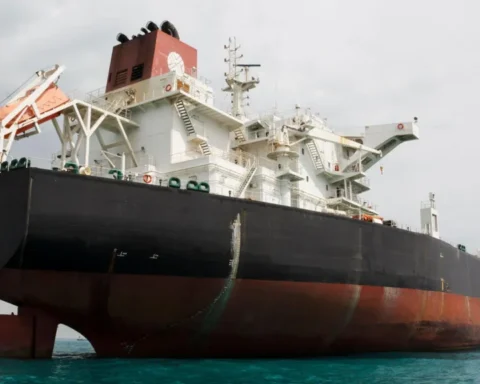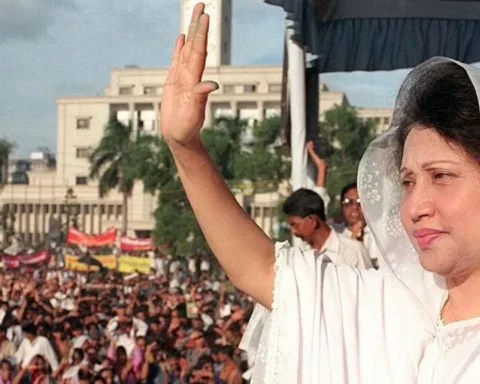President Aleksander Lukashenko has trumpeted his ‘peacekeeping’ role in quelling the Wagner mercenary group’s rebellion in Russia, raising questions about his motives.
Kyiv, Ukraine – A mediator’s mantle is not something Belarusian President Aleksander Lukashenko is often seen wearing.
Dubbed “Europe’s last dictator”, Lukashenko has cracked down on critics and protests with harrowing cruelty, human rights groups say.
So when Lukashenko’s press service on Saturday night trumpeted his “peacekeeping” role in quelling the Wagner private army’s rebellion in neighbouring Russia, the biggest question was: What’s in it for him?
First, Lukashenko signalled that Russian President Vladimir Putin, his biggest political and financial patron, can’t write him off.
“He simply showed that he is still useful to Russia, and that’s why he himself is still in Minsk,” John Lechner, an author in Washington, DC, who is writing a book about Wagner Group founder Yevgeny Prigozhin, told Al Jazeera.
By hosting Prigozhin and his men, Lukashenko also gets thousands of experienced mercenaries.
“If Prigozhin stays in Belarus and manages Wagner or something similar, it boosts the political clout of Lukashenko, who will have his own real private army,” Nikolay Mitrokhin of Germany’s Bremen University told Al Jazeera.
Belarusian authorities have started building camps for 8,000 Wagner men in the forests of the Mogilev region, which lies on the Russian border, the Verstka news portal reported on Monday.
It is also only 100km (62 miles) southwest of the Belarusian capital, Minsk, and 200km (124 miles) north of the Ukrainian border
And yet again, Lukashenko showed that he can punch above his weight.
‘Bloodbath’
Saturday may go down in history as Putin’s worst day in power.
Prigozhin accused the Russian Ministry of Defence of striking Wagner camps in Ukraine and killing 30 fighters to force members of the mercenary group into signing contracts and becoming part of the regular Russian forces.
The Wagner Group marched from Ukraine into Russia and seized the southern city of Rostov-on-Don. Prigozhin then ordered his men to advance towards Moscow.
Putin branded him a “traitor” and reportedly fled the Russian capital as Wagner men moved almost unimpeded, shooting down several aircraft and killing pilots.
They were about 200km (124 miles) south of Moscow – and seemed fully capable of becoming the first army to enter the city since 1812 when Napoleon’s army burned it down.
And then, out of the blue, Lukashenko’s press service said he found “an absolutely beneficial and acceptable option for resolving the situation”.
The deal Lukashenko brokered was simple: Putin drops insurrection charges against Prigozhin and his men, they retreat and Belarus takes in their chief.Play Video
Video Duration 12 minutes 27 seconds12:27The Wagner Group explained | Start Here
Putin said on Monday that the Wagner fighters have to choose whether they want to sign up with the Ministry of Defence, return home or go to Belarus.
“I’m sure this will be the choice of Russian warriors who realised their tragic mistake,” Putin said in a televised address.
The accord followed multiple phone calls between Lukashenko and Prigozhin.
“The conversation was complicated,” pro-Lukashenko analyst Vadim Gigin said in televised remarks. “They immediately revealed things of oh-my-God kind.”
Executions and ‘blood diamonds’
“Oh, my God” is what many would say about Prigozhin.
He prefers not to stick to the letter of the law – Russian or international.
Prigozhin’s “troll farm” allegedly used fake accounts or stolen identities of real Americans to spread Kremlin propaganda and interfere in the 2016 presidential elections in the United States.
Prigozhin’s mercenaries are also accused of committing war crimes such as killing “traitors” with sledgehammers and videotaping the executions.
They helped Syrian President Bashar al-Assad regain control of most of his country – and then began operating in Libya and several sub-Saharan African nations.
Africa remains Prigozhin’s citadel, where he keeps thousands of fighters and earns money by providing security services to several governments and trading “blood diamonds”, gold, tungsten, timber and weapons, according to All Eyes on Wagner, a French group that monitors the mercenary force.
A former senior Wagner commander even praised Prigozhin for bringing stability to the Central African Republic, whose population, he said, “is absolutely excited about the presence of Russian mercenaries”.
“Because the central government widens its control, there’s more order and people can safely move around without a danger of being killed,” Marat Gabidulin, who fled to France and wrote two books, told Al Jazeera.
Tactical gains, strategic losses
Prigozhin’s African connections could prove useful to Lukashenko in his own dealings with China, which have already brought in trade preferences and multibillion-dollar credits.
These connections could also be useful to Beijing as it boosts its clout in Africa further, Igar Tyshkevich, a Belarusian analyst based in Kyiv, said in televised remarks.
The troll farm’s spin doctors launched several successful media outlets and Telegram channels – and Lukashenko could use their expertise.
“After the failure of Belarusian propaganda, such talents are needed,” Tyshkevich said.
But the strategic, long-term consequences may be way worse.
Any future conflicts between Prigozhin and Putin’s allies will backfire on Lukashenko.
By providing shelter to a notorious accused war criminal, Lukashenko loses any chance of restoring ties with the West.
“That’s why Lukashenko got into a traditional format of his political career’s stage – he won tactically, but strategically got himself into a very bad smelling place,” Tyshkevich concluded.






